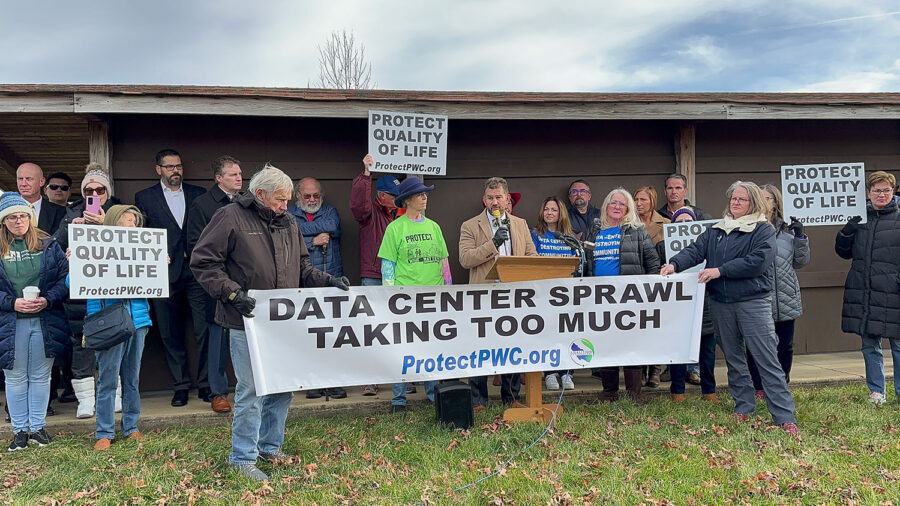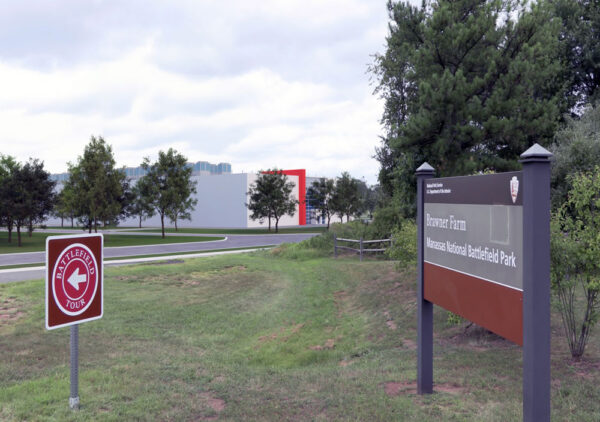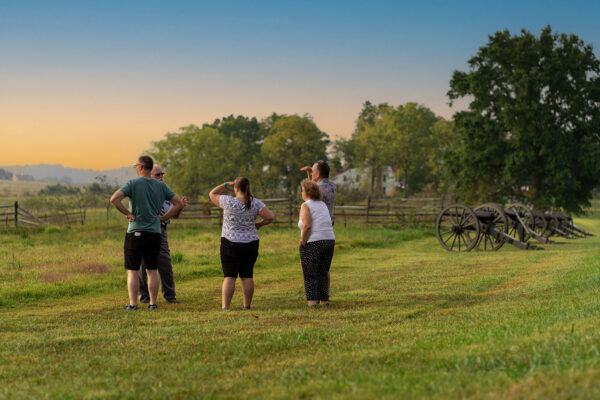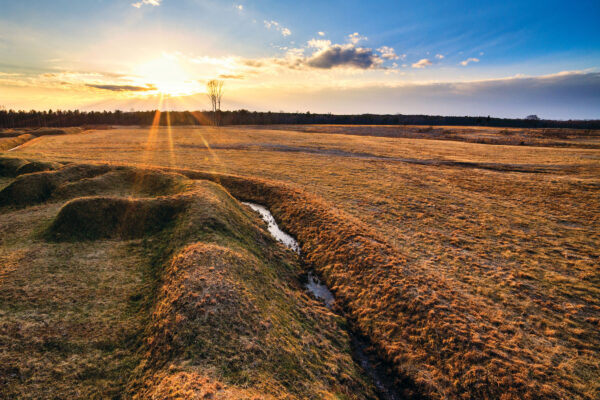 Melissa A. Winn/American Battlefield Trust
Melissa A. Winn/American Battlefield TrustAttorney Chap Petersen, alongside members of the coalition to protect Prince William County, speaks against the recent approval of the Prince William digital gateway at a press conference on January 12, 2024.
It’s a narrative unfortunately all too familiar in Virginia: a data center development project set to destroy a portion of historic landscape. On December 13, 2023, the county board of supervisors granted rezoning approval for the Prince William Digital Gateway to be built in a narrow corridor between the western edge of Manassas National Battlefield Park and Conway Robinson State Forest. At full buildout, it would be the largest data center campus on earth.
The final vote—4 to 3 with one abstention—came in the face of overwhelming public opposition, including a marathon 27-hour meeting featuring comments from hundreds of residents, and against the recommendations of both professional planning staff and the appointed planning commission. But the lame duck board pushed the measure through before a new board could render a different decision.
After careful consideration, the American Battlefield Trust joined nine local citizens in taking legal action to halt the project’s construction, and filed a lawsuit on January 12, 2024. The suit asks the Circuit Court for Prince William County to overturn the granted rezonings by highlighting violations in the process, including a lack of necessary information about the development, unauthorized waivers of critical analyses, and the improper delegation of rezoning power due to a failure to identify the designated use for specific acres.
In recent years, data centers have emerged as a growing threat to historic landscapes across Virginia. A combination of state policy, geography, and local zoning decisions has positioned the state as the data center capital of the world. While these campuses were once concentrated in Loudoun County, which still processes 70% of global internet traffic, their footprint is expanding rapidly, causing the Trust to engage with multiple proposals touching on the Brandy Station, Glendale, Manassas, and North Anna battlefields, and with others sure to come. In Orange County, we are similarly engaged in a lawsuit with other local landowners surrounding a mega-proposal at Wilderness Crossing that was expedited at the cost of good governance procedures.
Given that these data centers serve as the backbone of modern cloud-based internet infrastructure, they are backed by some of the world’s largest companies, such as Amazon and Meta, with seemingly limitless resources. Their substantial pockets enable them to offer payments far exceeding fair market value, making it challenging for organizations like the Trust and the National Park Service to compete in these desirable regions.
The Trust certainly recognizes the necessity of data centers to our modern lives—we use digital media to educate millions of people around the world about American history. However, we believe siting for centers should be considered carefully to protect historic, cultural, and environmental resources. Whereas this process has long been solely a local land use decision, the new legislative session in Richmond is hearing wishes to explore a more comprehensive view that will offer commonsense guidelines to the industry. Your gift to support the Trust’s advocacy work will help us continue to hold the line against such inappropriate development as PW Digital Gateway. Visit battlefields.org/stopthethreats.
David Duncan is president of the nonprofit, nonpartisan American Battlefield Trust, and organization dedicated to preserving America’s hallowed battlegrounds—Revolutionary War, War of 1812, and Civil War—and educating the public about their significance.




